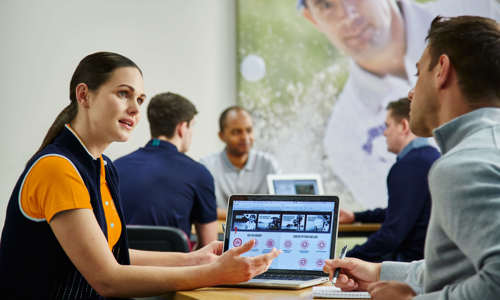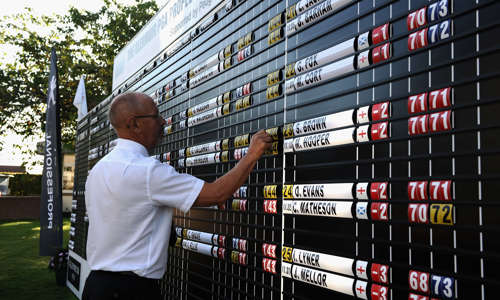How did you end up where you are today?
This was very much down to fate. My brother had a hairdressing salon in Wath-upon-Dearne and he knew Neil Cheetham – Neil was a tour professional at the time and was coached by Graham Walker. They were setting up The Walker’s Golf Academy and thought that it would work well for me to join the team. My interview was on the golf course as Graham was keen to find out how good a player I was. I was pleased that my interview was a success and I received a glowing report from Neil. Graham Walker’s Academy was then born and, 20 years on, and we are still working together. I still have lessons with Graham. I thought that I knew everything, but I soon realised that I needed to learn and he quickly became my mentor. We then moved to The Oaks near York in 2004 and we’re still there.
What’s the best bit of advice that you’ve been given?
Graham’s little mantra is: “Make sure that you can play the game first and be able to demonstrate.” If you are sitting in a room, don’t always believe everything, – he’s always encouraged me to attend CPD seminars and spend time with quality coaches, know that the person in front of you can perform as expected and know that it works. Go and try it first and make sure that it works, because one day that good player may just ask you to demonstrate that shot.
In 2019 you were diagnosed with Stage 2 breast cancer, can you explain what you went through?
I had radiotherapy every day for three weeks, I didn’t have any chemo and I still worked. With radiotherapy they give you a set time every day and mine was two o’clock. It took me an hour to get to the hospital. I made sure that I was still working, I didn’t burden any of my clients with my illness and I made sure that I was still that happy, jolly Lysa Jones. Nobody knew what I was going through and, to be honest, it certainly gave me a positive outlook on life. They say that the radiotherapy can make you tired, but I was quite fit because I started cycling before my operation and I made sure that I cycled pretty much every day, just to get me through the radiation. There is a horrible process that they don’t tell you, that you are going to go through. It is operation, radiotherapy and then you take tamoxifen for five years of your life. So I’m still on it and I have to have it every day. Now I feel fantastic and I’m living every day as it comes, as you would when you’ve had this type of diagnosis. I’m still the same person as I was; I have a strong work ethic, I’m still extremely busy as a coach and I would like to think that I am now a sounding board for anyone who is going through it. I just want to get the message out there that there is success from cancer treatment.




































